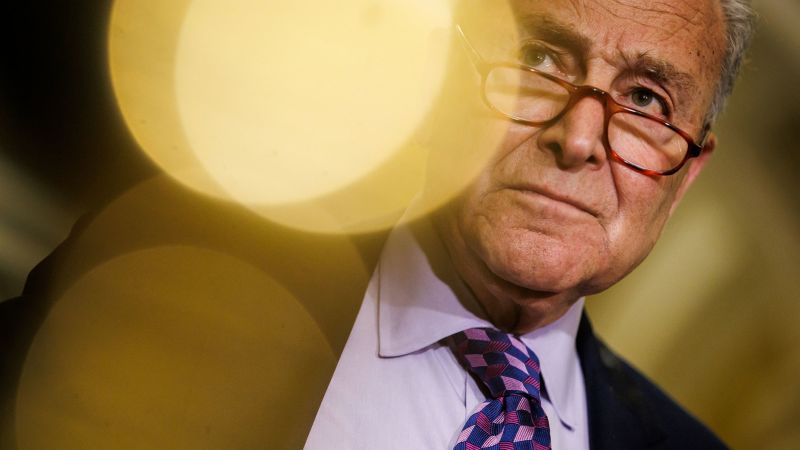The upcoming funding deadline for the government has put the Democratic Party on the hot seat as they prepare for a challenging confrontation with President Donald Trump. Senate Minority Leader Chuck Schumer, in particular, is looking to strategically navigate this high-stakes scenario with a firm focus on unity within his party. Previously perceived as a bogeyman for the Democrats amid rising tensions, Schumer is keen on avoiding the pitfalls of a potential government shutdown that could arise from their clashes with Trump.
In the months preceding this upcoming funding battle, Schumer has already been proactive in laying the groundwork. After a tumultuous standoff that ignited fierce anti-Trump sentiments within his party, he appears determined to ensure that the Democrats do not repeat past mistakes. He has been focusing on solidified strategies aimed at preventing the narrative of “Democrats in disarray” from resurfacing, which had severely hindered their credibility during the contentious negotiations earlier this year.
Democratic senators have indicated that lessons were learned from March’s funding confrontations, highlighting that Schumer’s current approach involves seeking a unified stance amongst party members. The objective is to foster a collaborative atmosphere in anticipation of the impending battles that lie ahead post-congressional recess. In a recent caucus-wide meeting, he discussed future strategies with fellow Democrats, looking to promote a collective front.
However, as Schumer and his team plot out a path forward, they face a significant challenge: achieving consensus among a diverse faction of senators. In March, only nine Democratic senators chose to align with Republicans to maintain government operations, reflecting the divided sentiments within the party. Since then, the reasons for opposing Trump have intensified, especially in light of the Republican-led massive tax and spending cuts that signal stark changes to essential services like Medicaid and food assistance.
The discussions surrounding the appropriations process have become increasingly charged. Independent Senator Angus King, who usually caucuses with the Democrats, expressed skepticism about future votes on appropriations bills. He raised concerns about past instances where bipartisan agreements might have been easily overturned by subsequent GOP initiatives promising cuts to appropriated funds. King’s apprehensions sum up a general sense of caution that appears to be prevalent among Democrats.
The backdrop of these discussions includes not only internal party dynamics but also the potential tug-of-war with Republican legislators in the House, where leadership will dictate the appropriations strategy. House Minority Leader Hakeem Jeffries recently underscored that Democrats are resolute in their intent to reject any highly partisan spending proposals thrust on them by Republicans, thereby indicating a willingness to confront the GOP head-on if necessary.
With the government shutdown looming larger in the distance, the Democrats find themselves trapped between two pressing realities: balancing the demands of their core base who call for aggressive pushback against Trump while also negotiating in a bipartisan manner where political standoffs could lead to dire ramifications—a scenario Democrats struggled to manage previously.
As they confront this challenging landscape, Democratic senators, including figures like Mark Warner, Tim Kaine, and Elizabeth Warren, have emphasized the necessity of clarity in negotiations with Republicans. They assert that concrete agreements must be established to prevent the kind of funding rescissions that would unravel any compromises reached.
Yet even amidst these considerations, some within the party, including Senator Jeanne Shaheen, voice the need for collaborative governance, urging that the responsibility for spending decisions should not only fall on the executive branch but must also reflect a more robust legislative oversight.
Ultimately, the Democrats’ battle against their own apprehensions and the complexities of congressional dynamics will define their approach in the upcoming weeks. The broader Republican strategy, seen as potentially confrontational by Democrats, further complicates this drama, underscoring the unpredictability that looms over the September funding negotiations. With various members of both parties issuing stern warnings, the stakes continue to rise, making this funding deadline not only a test of political will but also a defining moment for party cohesion as they venture into the tumultuous political waters ahead.











